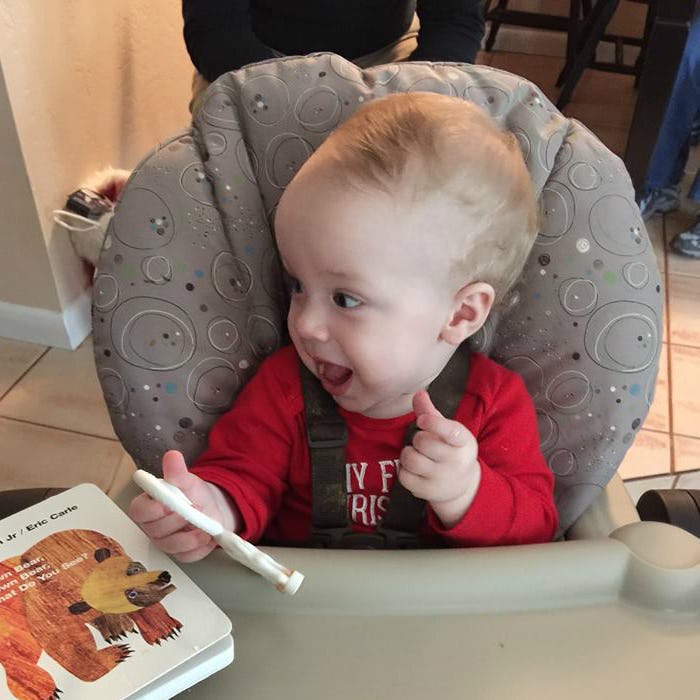Life

8 Ways Your Baby Is Trying To Tell You They're Teething
There's an old adage that small children learn about the world by testing out everything to see if it's edible. So, in a way, it's not that unusual if your infant is preoccupied with trying to eat the table, rocks, or anything else they come across. But when are your child's interesting habits more than basic curiosity? They may actually be ways your baby is trying to tell you they're teething. That's an especially difficult task if your child isn't able to talk. But even if your toddler can communicate, they may not know how to tell you that their molars are coming in and causing them pain.
Perhaps one of the most challenging aspects of parenthood is that you desperately wish you could know what was going on in your kid's head, but rarely have the ability to do so. From trying to decode their cries and babbling to interpreting what their behavior might mean, parenthood can make you feel like an exhausted, under-paid detective. Thankfully, there are actually some pretty concrete ways to discern if your baby is getting a new tooth so you don't have to do all the guess work. So check out some of the ways your child is trying to tell you they're teething.
1They're Not Hungry
If you ever had a tooth pulled or wore braces, you probably remember being completely turned off from food for a bit. Well, as it turns out, babies are pretty similar in that regard. According to Parents, a loss of appetite is a way your baby is trying to tell you they're teething, because both sucking liquid and chewing solids can be painful as new teeth are coming in.
2They're Eating Everything In Sight
Since not all children are the same, some babies are completely opposite when it comes to appetite. As Baby Center noted, biting, chewing, and gnawing on hard food or objects is a sign of teething. If your child loves chewing on a carrot, their fingers, or hard toys, they're probably trying to give you the heads up that teeth are on the way.
3They're Drooling More Than Usual
Pretty much all babies drool. But according to the experts at What To Expect When You're Expecting, excessive drooling can indicate your baby is teething. So if your child is leaving a trail of saliva everywhere they go and soaks through bibs faster than a hose, they're probably teething.
4Their Face Is Irritated
If your baby has developed a rash or small irritations around their lips, on their chin, or near their mouth, that could actually be a way your baby is telling you they're teething. I remember taking my son to the pediatrician because I thought he contracted some type of disease. As it turns out, the pediatrician said that a combination of all that time spent chewing on things and their excessive drooling can cause a mild skin irritation during their teething period. Thankfully it goes away fairly quickly and can be managed by keeping your baby's face as dry as possible.
5Their Nose Is Running
It's not just the drool that can be going into overdrive, it turns out their nose can turn into a faucet, too. According to Orajel, an oral care company, a runny nose can be baby's way of telling you they're teething. Usually this is a harmless symptom, but if you're concerned, it's always a good idea to check with a physician.
6They Pull On Their Ears
Is your baby trying to send you a covert message by tugging on an ear? Well, yes, but it has nothing to do with being a spy, unfortunately. As Parenting noted, "pain from the jaw gets transferred to the ear canal," and the only way a baby knows how to address this is by pulling on their ears.
7They're Warm
Chalk this one up to being a new mom, but I took my son to the doctor the first time he had a mild fever of 100 degrees Fahrenheit. Again, the pediatrician calmed my fears by saying that a low-grade fever is a classic sign of teething. She did say to pay attention if it rose above 102 degrees, because that could be a sign of something more serious.
8They Seem Sick
A runny nose, loss of appetite, a mild fever, these all sound like typical signs you have a cold. As it turns out, this combo can actually be your baby's way of saying they're teething. Dr. Raymond Lee, a pediatric dentist, told Today's Parent that a, "baby can have a systemic reaction, which manifests as flu-like symptoms." But still, as usual, you can always check with a physician just to be safe.